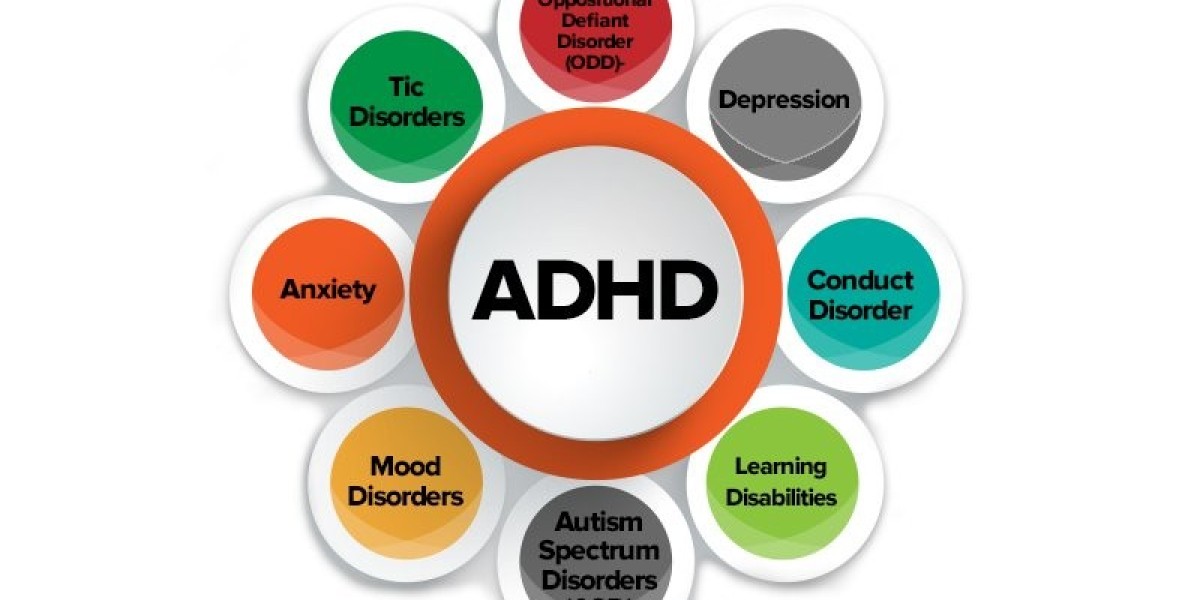Attention Deficit Hyperactivity Disorder (ADHD) is one of the most commonly diagnosed neurodevelopmental disorders, yet it remains surrounded by numerous myths and misconceptions. This can lead to stigma, misunderstanding, and inadequate treatment for those affected. Understanding the realities of ADHD is crucial not just for those diagnosed but also for families, educators, and society as a whole. In this article, we will explore and debunk some of the most prevalent myths about ADHD, separating fact from fiction.
Myth 1: ADHD is Not a Real Disorder
One of the most damaging myths is that ADHD is not a real disorder but rather a label for children who are simply undisciplined or lazy. This misconception can invalidate the experiences of those with ADHD and discourage them from seeking help.
Fact: ADHD is recognized by major medical organizations, including the American Psychiatric Association and the World Health Organization. It is classified as a neurodevelopmental disorder, characterized by persistent patterns of inattention and/or hyperactivity-impulsivity that interfere with functioning or development. Brain imaging studies show structural and functional differences in the brains of individuals with ADHD, supporting the notion that it is a legitimate medical condition.
Myth 2: ADHD Only Affects Children
Many people believe that ADHD is a childhood disorder that individuals outgrow by adolescence. While it's true that some symptoms may diminish with age, ADHD can persist into adulthood.
Fact: Studies indicate that approximately 60% of children with ADHD continue to experience symptoms in adulthood. Many adults remain unaware of their diagnosis, attributing their challenges to personality traits or life circumstances. This lack of awareness can lead to significant difficulties in personal and professional settings. Adult ADHD is often marked by issues such as chronic procrastination, relationship problems, and difficulty maintaining employment.
Myth 3: People with ADHD are Just Being Lazy
Another prevalent misconception is that individuals with ADHD lack motivation or discipline. This stereotype can lead to blame and frustration from peers, educators, and family members.
Fact: ADHD is not a matter of willpower or laziness. The condition affects executive functions, which include planning, organization, and self-regulation. Individuals with ADHD may struggle to complete tasks or stay focused, not because they lack motivation, but because their brains process information differently. Effective management often requires tailored strategies, such as breaking tasks into smaller steps and setting clear deadlines.
Myth 4: ADHD is Caused by Poor Parenting
Some believe that poor parenting practices are the root cause of ADHD, attributing the disorder to a lack of structure or discipline in the home.
Fact: While a stable and supportive environment is beneficial for children with ADHD, research indicates that the disorder is primarily genetic and biological. Studies show that ADHD runs in families, suggesting a hereditary component. Environmental factors, such as prenatal exposure to toxins or low birth weight, can contribute, but they are not the sole cause. Blaming parenting can lead to unnecessary guilt and further exacerbate the struggles of families dealing with ADHD.
Myth 5: Medication is the Only Treatment for ADHD
The idea that medication is the sole effective treatment for ADHD can deter individuals and families from seeking alternative therapies or support strategies.
Fact: While medication can be highly effective for many individuals with ADHD, it is not the only option. Behavioral therapies, cognitive-behavioral therapy (CBT), psychoeducation, and lifestyle changes—such as diet and exercise—can also play a crucial role in managing symptoms. A comprehensive treatment plan often involves a combination of medication and behavioral interventions tailored to the individual's needs.
Myth 6: ADHD is Just an Excuse for Bad Behavior
Some people believe that ADHD is simply an excuse for children to misbehave or act out, leading to further stigma against those diagnosed.
Fact: The behaviors associated with ADHD—such as impulsivity, hyperactivity, and inattentiveness—are symptoms of a medical condition, not intentional acts of defiance. These behaviors can significantly impact a child's ability to succeed academically and socially. With appropriate interventions and support, individuals with ADHD can learn to manage their symptoms and improve their behavior.
Myth 7: All Individuals with ADHD are Hyperactive
A common stereotype is that all people with ADHD are hyperactive or excessively energetic, leading to misconceptions about the disorder's nature.
Fact: ADHD presents in different forms. The three primary types are predominantly hyperactive-impulsive, predominantly inattentive, and combined presentation. Individuals with the predominantly inattentive type may appear to be daydreaming, easily distracted, or forgetful, often without the hyperactive symptoms. This misconception can lead to the underdiagnosis of inattentive ADHD, particularly in girls and women, who may display less overtly disruptive behaviors.
Myth 8: People with ADHD Can Just "Try Harder"
The belief that individuals with ADHD can overcome their challenges simply by trying harder can be particularly harmful.
Fact: Individuals with ADHD often want to succeed and may try very hard, but their brain's neurochemistry affects their ability to do so. The symptoms of ADHD are not a result of character flaws or lack of effort. Instead, they reflect differences in brain function and structure. Understanding this distinction can foster empathy and encourage supportive strategies rather than blame.
Conclusion
Understanding ADHD requires dispelling myths and embracing the facts that underpin this complex disorder. By separating fact from fiction, we can create a more supportive environment for those affected by ADHD. It is essential for parents, educators, and society to educate themselves about ADHD, recognizing it as a legitimate medical condition that requires understanding and appropriate intervention. By fostering awareness and empathy, we can help individuals with ADHD lead fulfilling lives and reach their full potential.
Naijamatta is a social networking site,
download Naijamatta from Google play store or visit www.naijamatta.com to register. You can post, comment, do voice and video call, join and open group, go live etc. Join Naijamatta family, the Green app.
Click To Download

